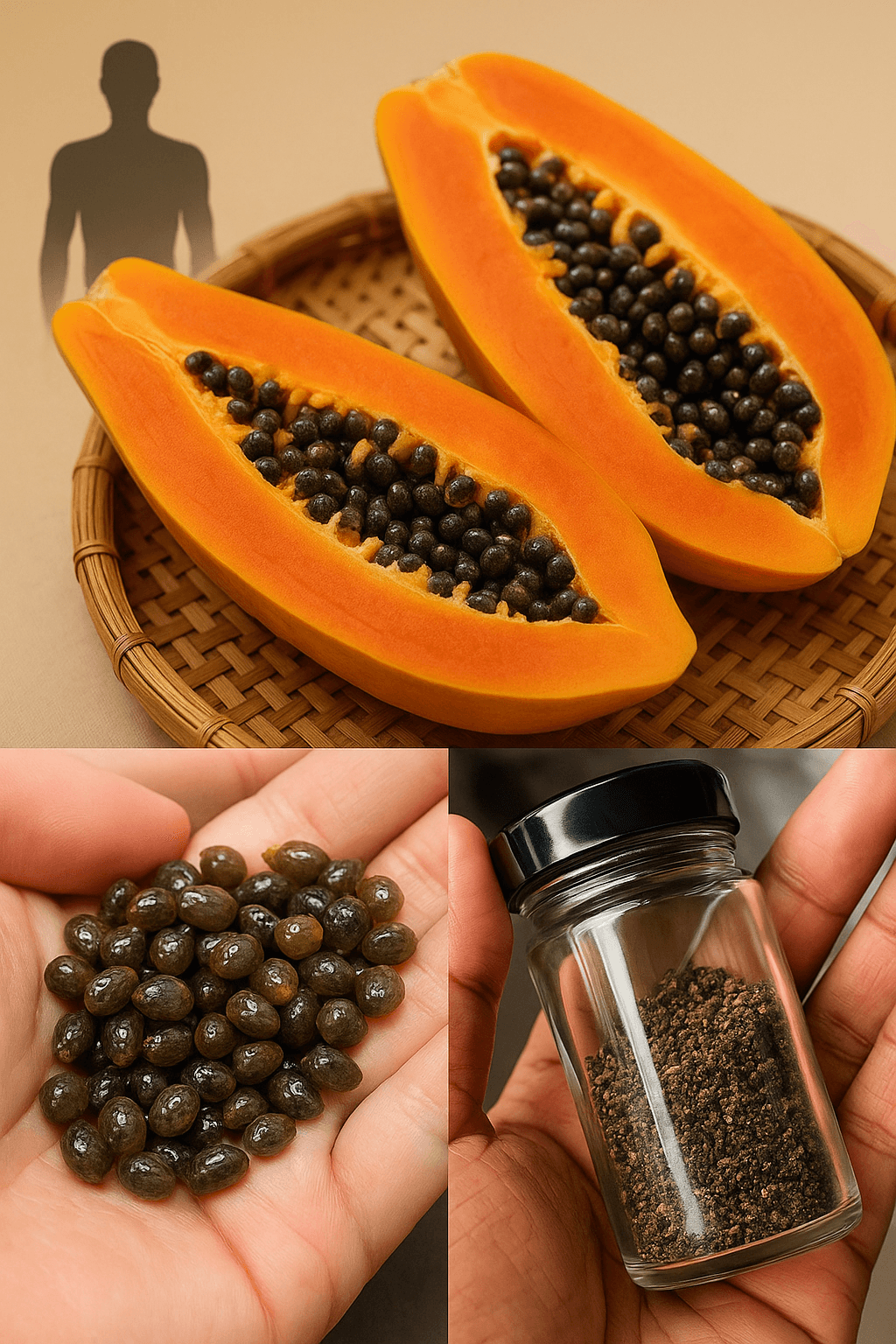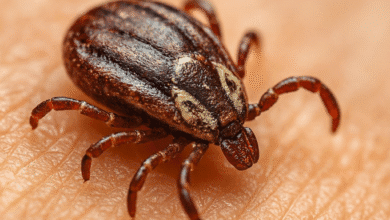Papaya seeds: why you should think twice before throwing them away

They may look like a minor detail in the fruit, but papaya seeds pack fiber and antioxidants — plus the enzyme papain, which may support digestion. Many people scrape the seeds straight into the trash without realizing they can be used as a food/seasoning and help reduce waste.
What the science actually says
Evidence on papaya seeds is still preliminary. Lab and animal studies suggest digestive, antioxidant, and antimicrobial effects, but robust human trials are lacking. Treat them as a food/seasoning, not as medicine.
12 potential benefits
- Lighter digestion: papain helps break down proteins and may reduce bloating.
- Liver support: antioxidants may assist natural detoxification processes.
- Everyday kidney balance: antioxidant action may support normal kidney function.
- Fewer mild inflammations: potential anti-inflammatory effects can help with minor discomfort and post-workout recovery.
- Body defenses: antimicrobial properties help the body deal with unwanted bacteria.
- Gut harmony: may contribute to a more diverse, healthy microbiota.
- Skin appearance: antioxidants combat oxidative stress, supporting a fresher look.
- Lipid profile: fiber and antioxidants can help manage LDL within a balanced diet.
- Cell protection: help neutralize free radicals and slow premature aging.
- Satiety: fiber increases fullness and may reduce snacking.
- Glycemia: moderate use can help avoid spikes when included in an appropriate eating plan.
- Sustainability: using the whole fruit means less food waste.
How to include them in your routine
- Smoothie: add 1/4 teaspoon of the powder.
- Salad: sprinkle ground seeds (the flavor is similar to black pepper).
- Infusion: simmer a few seeds in water and drink warm after meals.
- Seasoning: use ground, in moderation, as a pepper substitute.
- Raw: you can eat them straight from the fruit, in small amounts (the taste is strong).
Serving size and frequency
Start with 1/4 teaspoon per day for a few days. If well tolerated, healthy adults may occasionally go up to 1/2 teaspoon. Avoid large amounts and do not use as a “cure” for any disease.
How to make papaya seed powder
- Remove seeds from a ripe papaya and rinse under running water to remove pulp.
- Dry thoroughly: air-dry in the shade for 5–7 days in a ventilated place, or use a low oven/dehydrator (60–70 °C) to prevent mold.
- Grind in a spice grinder or high-power blender.
- Store in an airtight jar, away from light and moisture (use within 2–3 months).
Flavor note: do they taste like pepper?
Yes. The taste is bold and slightly hot, very similar to black pepper — which is why they work as a seasoning substitute. Use sparingly.
Safety and contraindications
- Excess may cause digestive discomfort.
- Avoid for young children, pregnant or breastfeeding individuals.
- Allergy to papaya/latex or existing liver/kidney disease: do not consume without medical guidance.
- If you take daily medications or have a chronic condition, consult your healthcare professional before adding them.
Quick FAQ
- Can I eat them straight from the fruit? Yes, in small amounts.
- Can children have them? Better to avoid for young children; also not recommended during pregnancy or breastfeeding.
- Do they really help digestion? They can, thanks to papain — but they don’t replace medical treatment.
- Can I use them every day? Use in moderation. Prefer small portions and watch your tolerance.
Takeaway
Papaya seeds have been there all along — and most of us tossed them out. Used moderately, they can support digestive well-being and help you make the most of the whole fruit, without miracle claims.
Disclaimer: this content is for informational purposes and does not replace professional advice.


